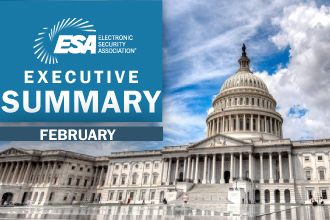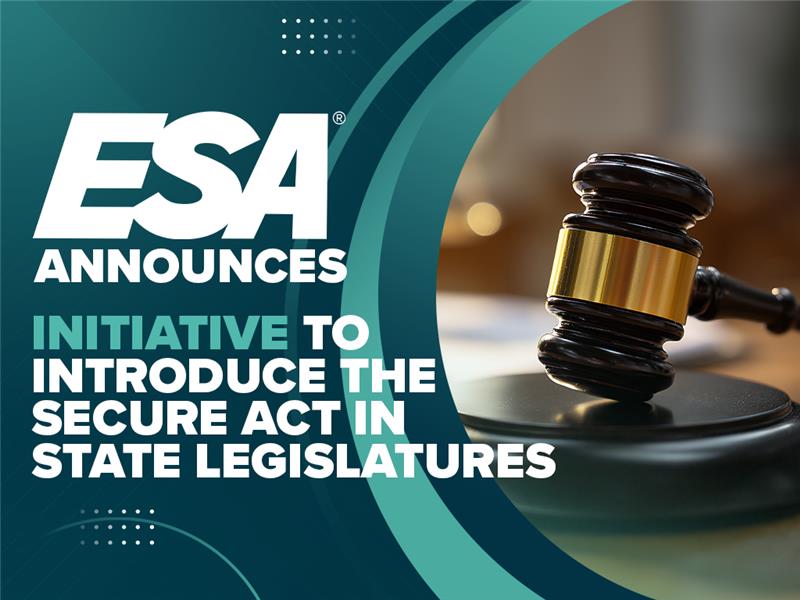February 2018 was another unprecedented month for legislation driven by a tragic ‘focusing event’. But, other legislation that demands attention also warrants some discussion. The mass shooting in Parkland, Florida spurred Legislatures to file bills that take numerous approaches to school safety. Some bills create mechanisms for school teachers and employees to carry concealed weapons. February 2018 was another unprecedented month for legislation driven by a tragic ‘focusing event’. But, other legislation that demands attention also warrants some discussion.
School Security
The mass shooting in Parkland, Florida spurred Legislatures to file bills that take numerous approaches to school safety. Some bills create mechanisms for school teachers and employees to carry concealed weapons. Others create commissions to study and report school security needs to local officials that will be publicly available. But, very few provide funding for electronic security and physical security measures.
The few exceptions that were filed or moved in February include WA SB 6620/HB 3004, which provide grants for schools to implement emergency response systems using evolving technology and RI HB 7850, which would require video monitoring systems, electronic admittance systems, in-school security guards and 10% of all funds allocated for schools be dedicated for school security needs.
False Alarms
The False Alarm Reduction Association (FARA) took a disturbing position on Maryland Legislation, during a committee hearing on February 20th regarding HB 1117. The bill was originally filed to fine alarm company contractors who request dispatch to end-user locations that do not have current registrations in local jurisdictions that require registration.
There was some negotiation on the bill to require some accountability on local authorities having jurisdiction (AHJ) to notify alarm contractors when registrations would be expiring and a consensus was reached. As an added consideration on the bill, ADT representatives requested language, like current law in California, Texas and Florida, that prohibits AHJ’s from fining alarm contractors for false alarms unless it is determined the alarm contractor is at fault.
However, in committee testimony on the bill, the executive director of FARA, who is also the executive director of the Maryland Burglar and Fire Alarm Association (MdBFAA), testified against the amendment that ADT submitted. Other representatives from FARA and MdBFAA also testified against the amendment.
It is difficult to understand organizations that purport to represent alarm contractors (MdBFAA) and reducing false alarms (FARA) testifying against a bill that requires due process before alarm companies are fined for false alarms. But, that is what happened. Testimony from FARA and MdBFAA representatives was in concert with the comments of AHJs who argued that it is not the practice of AHJs to fine alarm companies – but they don’t want a state law that prohibits them from doing so.
The Security Industry Alarm Coalition (SIAC) is in the midst of a federal lawsuit with Sandy Springs, Georgia over the procedural due process being denied alarm contractors with regard to false alarms. Due process is fundamental to any law or regulation and it is essential to the survival of this industry that procedural due process be protected when it comes to false alarm fines.
Why FARA and MdBFAA took this position may go to the composition of their membership, sponsorships or other factors, but for the purposes of discussion, it is important that stakeholders who support either of these organizations know that both organizations were unequivocally opposed to a state law that mandates procedural due process for alarm contractors before being fined for false alarms.
This Executive Summary is excerpted from the March 2018 issue of the Government Insider Newsletter. This newsletter is an ESA member benefit. ESA Members can access the Government Insider Blog for more.




